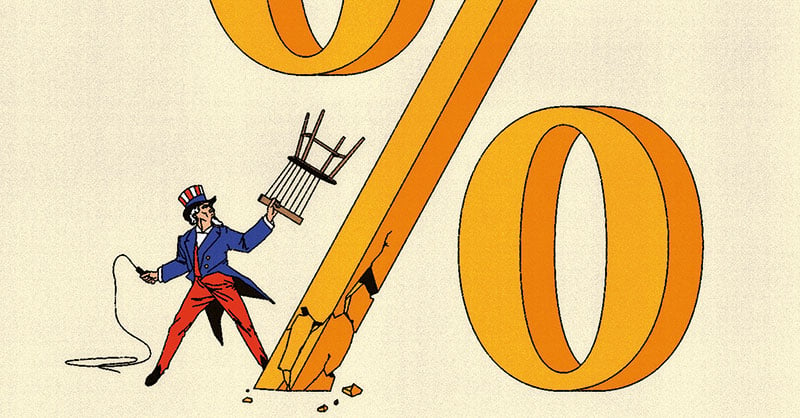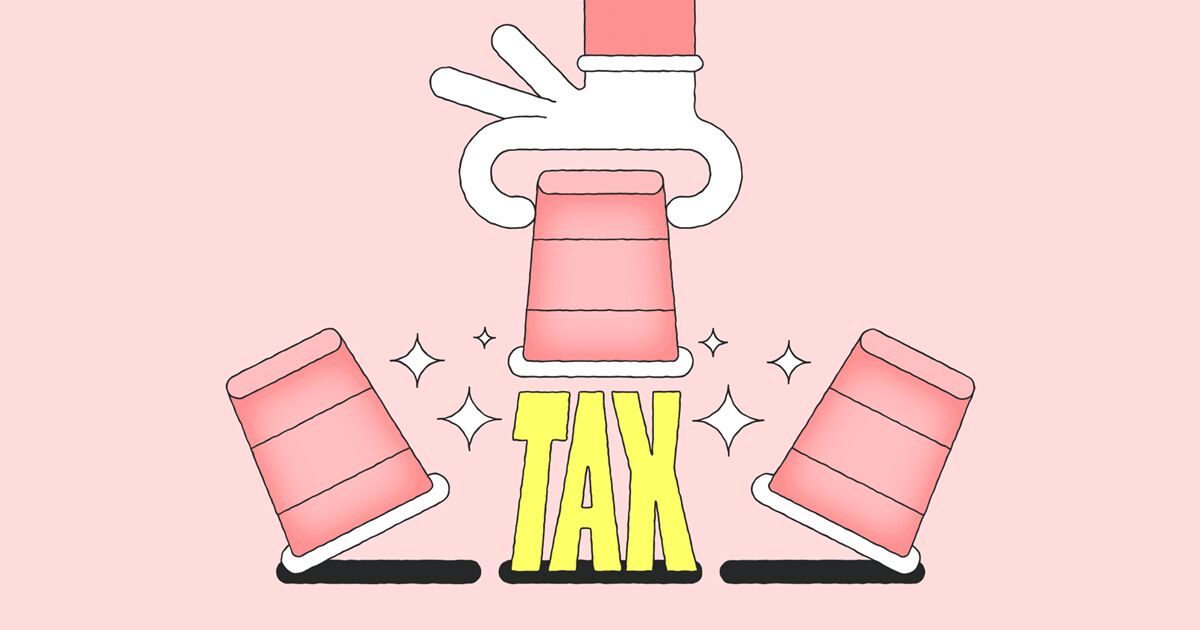
Tim de Silva
@timdesilva
Economist @StanfordGSB @SIEPR | Avid Racer
Curious about belief formation in the presence of fat tails? Check out my new paper with @dthesmar (and two other great co-authors not on X) that we presented at the NBER Behavioral Finance meeting: youtube.com/live/TXv1-eH-i… Paper here: timdesilva.me/files/papers/f… Thanks…
Corrigendum: after some offline discussion, HHR have moved from the bottom to the middle of my literature range. A short thread on why, including another dive into mapping moments into parameters.
When Trump announced sweeping tariffs in April, economists warned prices would jump and a recession was likely. Neither has happened -- yet. My latest story looks into why tariffs haven't hit the economic data yet, and why it's still too soon to conclude they won't.
There is a good logic to this kind of fiscal devaluation - replacing payroll taxes with a VAT is equivalent to a tariff, but probably flies much more under the radar
A value-added tax could address what fiscally ails the US and finally be politically palatable, @foxjust says bloomberg.com/opinion/articl…
Or this paper by Beraldi; which has some descriptive facts + model to think through them francberaldi.github.io/MyPapers/Franc…
Here is a simple example by @timdesilva. Reduced form tells you moral hazard “matters.” But model tells you it’s small timdesilva.me/files/papers/j…
Interesting. Will give it a read. The main graph is promising for credible identification, so, half-way home.
Awesome paper. Great example of how "null" results can be super informative when they come from a credible research design!
🚨 New NBER working paper: "The Impact of Unconditional Cash Transfers on Parenting and Children" This paper estimates the effects of receiving a $1,000/month guaranteed income for 3 years, compared to a control group receiving $50/month, on children and parents in the US. 1/
My reading of the empirical evidence is that there are moderate successes, France being perhaps the best example. What many people miss is that the goal is not to raise the TFR from 1.4 to 2.1, which is probably unfeasible, but rather to reach 1.7. At those levels, a gentle…
This is an awesome thread. My takeaways: tax leisure (to encourage labor), and things the rich have a taste for (to get their money without discouraging their labor supply)
Great article on debt and financial repression featuring @HannoLustig! harpers.org/archive/2025/0…

Very glad to be on the NBER SI Household Finance program this year. I presented a paper on private capital markets and inequality, joint with @cmtneztt and Ararat Gocmen. Presentation is here: m.youtube.com/watch?v=2t2Fqi… (starting 7:49:30), and a great discussion by Arthur Korteweg.
Awesome history of weak separability in optimal taxation here!
1/ Week 28: Theory paper in focus this week is the seminal article by Anthony Atkinson and @JosephEStiglitz that is now famously referred to as the "zero commodity/capital taxation" benchmark in public economics. It has led to much technical & policy debates. Let's find out.
We've launched Claude for Financial Services. Claude now integrates with leading data platforms and industry providers for real-time access to comprehensive financial information, verified across internal and industry sources.
Not surprising if many will not pay the costs!
The public's revealed preferences about debt and deficits suggest most Americans are not truly worried about our fiscal trajectory.
This is super interesting! CBO forecasts are pretty good
CBO assesses its two-year and five-year economic forecasts from as early as 1976 and compares them with those of the Administration, the Survey of Professional Forecasters, and the Blue Chip consensus. cbo.gov/publication/61…
👀 For a limited time, watch a presentation of "Geoeconomic Pressure" by @acoppola4 at the NBER SI Intl Finance & Macro session at youtube.com/watch?v=na7sKH…. We use LLMs to classify which governments apply pressure to which foreign targets, and how.
updated the daily #tariff series with projections given the letters sent out. The letters take the average tariff rate in the U.S. from about 15% to 20% on August 3.
When Italy prohibited interlocking directorates (i.e., common board members) interest rates of previously interlocked banks dropped by 14 basis points (similar magnitude as the impact of common ownership on airline ticket prices), consistent with pre-reform collusive behaviour.
"To understand America today, study the zero-sum mindset." My piece in @TheEconomist this week on how zero-sum thinking arises and why it matters so much for policy and politics. Based on our research at the Social Economics Lab. economist.com/by-invitation/…
